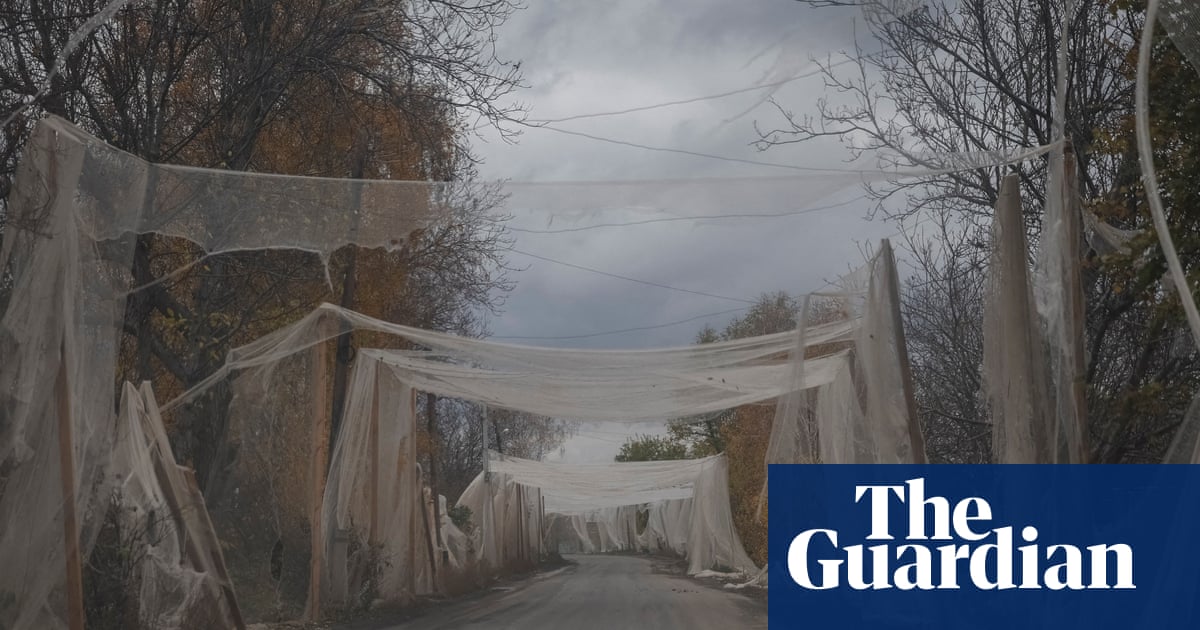Aid workers have said Israel’s new measures - meant to improve the humanitarian situation in Gaza - far fall short of what is needed and aid access continues to be blocked amid the population’s spiralling famine.
The new measures, which came into effect on Sunday and include daily humanitarian pauses, as well as airdropped aid and humanitarian corridors for UN aid trucks, were announced by Israel as international pressure mounted to alleviate the hunger crisis.
Aid groups have said Israel’s blockade of humanitarian aid into the Gaza strip is the principle cause of the starvation crisis, which has seen 151 Palestinians die of hunger, more than half of whom died in the past month alone. While the crisis has deepened, Israel’s military has continued its attacks, killing at least 103 people in Gaza over the last 24 hours according to Gaza’s ministry of health.
“Twenty-one months in, these are token gestures. They’re theatrics, they’re designed from my perspective to deflect scrutiny. We’re being blocked and delayed at every turn,” said Bushra Khalidi, the policy lead at Oxfam, commenting on the new Israeli aid measures.
Most of the crossings into Gaza are still not in use. The UN has called for a full ceasefire and for Israel to allow humanitarian aid into the territory to urgently address the hunger crisis.
The number of aid trucks that have been entering Gaza since the new measures have been announced has increased, with more than 200 trucks entering on Tuesday according to Israeli customs authority (COGAT). This equates to about 70 trucks entering daily on average since May.
However, the number of aid trucks still falls far below the 500-600 trucks the UN has said is necessary to sustain the two million residents of Gaza. Some aid agencies have suggested the true scale of need is now far greater than 600 trucks, given that Gaza is now facing famine.
“The needs are exponentially greater than they were prewar. But the access is actually worse. Starvation cannot be solved by 10 or even 300 trucks. What’s needed isn’t piecemeal fixes, but actual systemic changes,” Khalidi said.
Residents and medical professionals said they have yet to feel a change to their daily conditions, with malnutrition continuing to grip the territory.
“We are hearing a lot of news that more aid will come, but this is just in the media. The situation on the ground has not changed since Sunday. The food supply has not reached the target population,” said Dr Noor al-Din al-Amassi of the Project Hope NGO medical team in Gaza.
He added that malnourished children continue to come to his clinic for food each day while his patient load is at double capacity, and that he has no remaining “high energy biscuits” used to treat malnutrition to give them.
Despite the announcement of increased aid measures, humanitarians working at international organisations have said that behind the scenes, new bureaucratic obstacles continue to be thrown up which prevent them from importing aid into Gaza.
These include the new registration process for international NGOs, which requires non-UN aid organisations to register with the newly established Israeli Ministry for Diaspora Affairs and Combating Antisemitism.
As part of the registration process, INGOs have been asked to submit identification details of their Palestinian staff, which most are refusing to do as they fear it will have implications for the staff’s safety in Gaza and the West Bank.
They point to the high number of humanitarians killed by Israel in Gaza as an indicator of the risk involved in providing information about their staff to Israel. It is unclear if Israel will allow them to register without providing that information.
Some INGOs who have yet to receive their registration from the new Israeli ministry have had their imports into Gaza delayed indefinitely by Israeli customs, according to humanitarians familiar with supply chain logistics in Gaza and have had their own imports delayed.
They fear customs officials will not allow them to import goods into Gaza without being registered in Israel, jeopardising their ability to send aid into the besieged territory.
“While the clear violations on the ground in Gaza has a major impact on public opinion, the violations of access via bureaucracy don’t have the same impact on people because it’s boring and complicated. But this is what is stopping aid from getting in,” a humanitarian who works in Gaza aid supply chain management said anonymously as they were not allowed to talk to media.
Asking for clarification from the customs body has not yielded any answers, something the humanitarians said was part of a “deliberate policy” to make bringing aid into Gaza as complicated as possible. Explanations from customs officials for rejected or delayed aid imports into Gaza was rare, they said, leaving humanitarians to try to guess what was allowed in.
The humanitarian said dates and olives were consistently thrown out by Israeli customs official without explanation. After pooling their experiences with other aid groups, they realised the common denominator was fruits or vegetables with pits or seeds that could be planted.
Later shipments that contained date paste and pitted olives were let in the territory successfully.
Neither COGAT nor the Israeli Ministry for Diaspora Affairs and Combating Antisemitism responded to a request for comment.
While the new aid measures announced by Israel were a start, some UN officials said that if viewed holistically, aid access was still nowhere near what is needed.
“It’s always give with one hand, take away with the other,” said Sam Rose, the acting director of UNRWA affairs in Gaza.

 3 months ago
46
3 months ago
46

















































